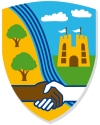E-safety is vital in school and at home.
We know the e-safety is critical for children (and parents) in this every changing world.
We have regular e-safety sessions for parents and of course e-safety is taught across the school.
Parent workshop materials can be downloaded here: E-Safety information and guides
We have an e-safety curriculum which is regularly reviewed in light of emerging technology and issues. You can download this below:
The core purpose of the e-safety work we do in school is to ensure children are equipped with the skills and knowledge to make important decisions about their actions online and know what to do and who to go to should anything go wrong.
We also hold workshops for parents to help you keep your children safe online. Keep an eye out in the newsletters for the next meeting.
Each year we support the Safer Internet Day campaign by having specific assemblies and lessons for the children focussed on e-safety.
It is vital that you keep yourself and your children safe while online.
Below are a few websites and resources that will help you learn how to keep safe.
It is vital that you discuss e-safety with your child.
There are always new issues around e-safety such as challenge videos and pop ups.
To help support you child you may like to use some of these resources below.
Remember to make sure that your child has the skills to know what to do if they see something scary online. They can follow these top tips from the BBC Own It website.
- Remember – you are in control
- Block and report it
- Don’t Pass it on
- Check your privacy setting on your device
- It’s not real!
- Tell an adult
- Get further help if needed.
You can also see the really useful short video from the BBC titled ‘Has something scared you online?’ : https://www.bbc.com/ownit/its-personal/when-you-see-something-scary-online
Children in primary school should not have social media accounts.
In order to safeguard your child from distressing images and videos we urge you to:
- Delete apps such as TikTok, WhatsApp, Facebook, SnapChats and any other social media apps that might be on your child’s device.
- Restrict the child’s ability to download their own APPs
- Restrict open access to the internet / safari etc
- Talk to your child about the importance of keeping them safe from inappropriate content
- Talk to you child about any new trends or Apps that people are talking about
- Learn about setting and how to manage your child’s device before they have access to it.
- Try out any Apps first and do some research about them before installing
Weblinks to keep your child safe online and using technology.
You can also see the weblinks that the children use by clicking here.
If you suspect on-line abuse please click here to go to the CEOP report page.
https://www.internetmatters.org/parental-controls/ – Clear advice and instructions for setting up parental controls on a range of devices
Protecting your child on their smartphone – a superb guide to the dangers of smart phones and advice and APPs to help protect your child. A MUST read for any parent.
www.saferinternet.org.uk – the UK Safer Internet Centre, where you can find e-safety tips, advice and resources to help children and young people stay safe on the internet.
www.saferinternet.org.uk – videos to help parents set up free parental controls – The 4 big internet providers in the UK – BT, Sky, TalkTalk and Virgin Media – provide their customers with free parental controls which can be activated at any time. They have come together to produce these helpful video guides to help you to download and set-up the controls offered by your provider.
http://familylives.org.uk – Parents’ guide to latest social media & instant messaging trends.
www.childnet-int.org – A non-profit making organisation working directly with children, parents and teachers to ensure that the issues of online child protection and children’s safe and positive use of the internet are addressed. Childnet International produce an online CD guide specifically for parents KnowITAll – www.childnet-int.org/kia/
www.thinkuknow.co.uk – The Child Exploitation and Online Protection (CEOP) Centre has set up its own edcational website which has been designed and written specifically for children, young people, teachers, parents and carers.
www.getsafeonline.org/ A beginners guide to using the Internet safety, including a quiz and some video tutorials about how to ‘stay safe’ on-line.
www.bullying.co.uk – One in five young people have experienced bullying by text message or via email. This web site gives advice for children and parents on bullying.
http://www.internetmatters.org/ – Internet Matters is an independent, not-for-profit organisation to help parents keep their children safe online.
Updated: September 2020
